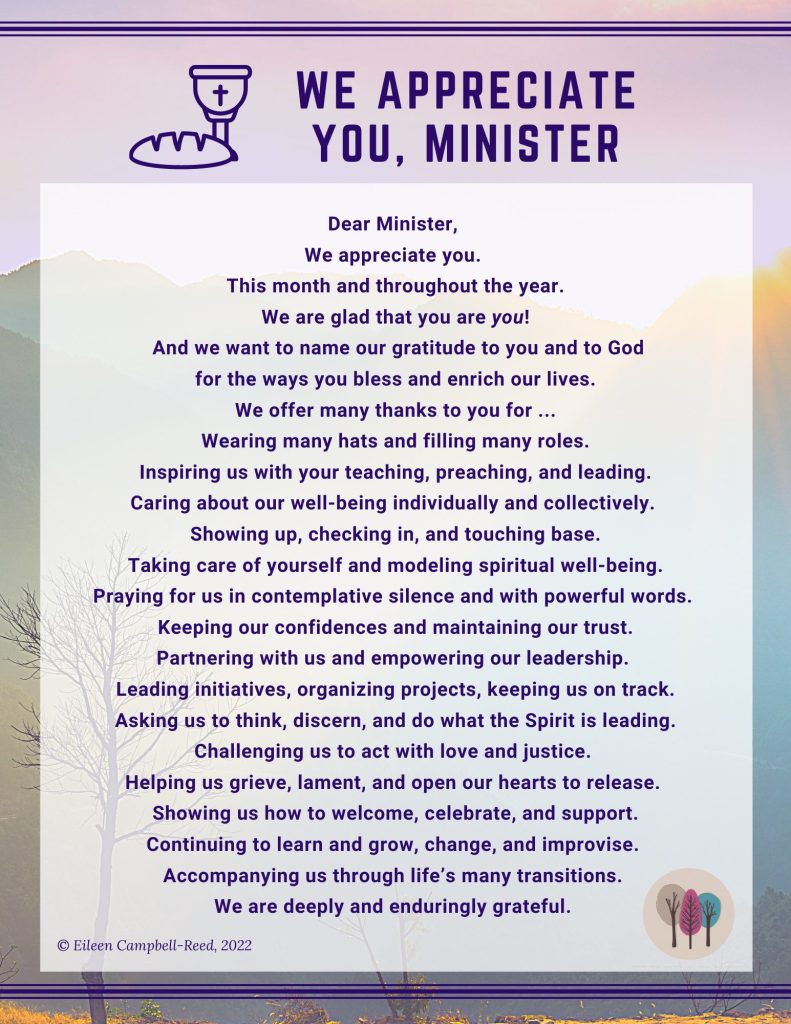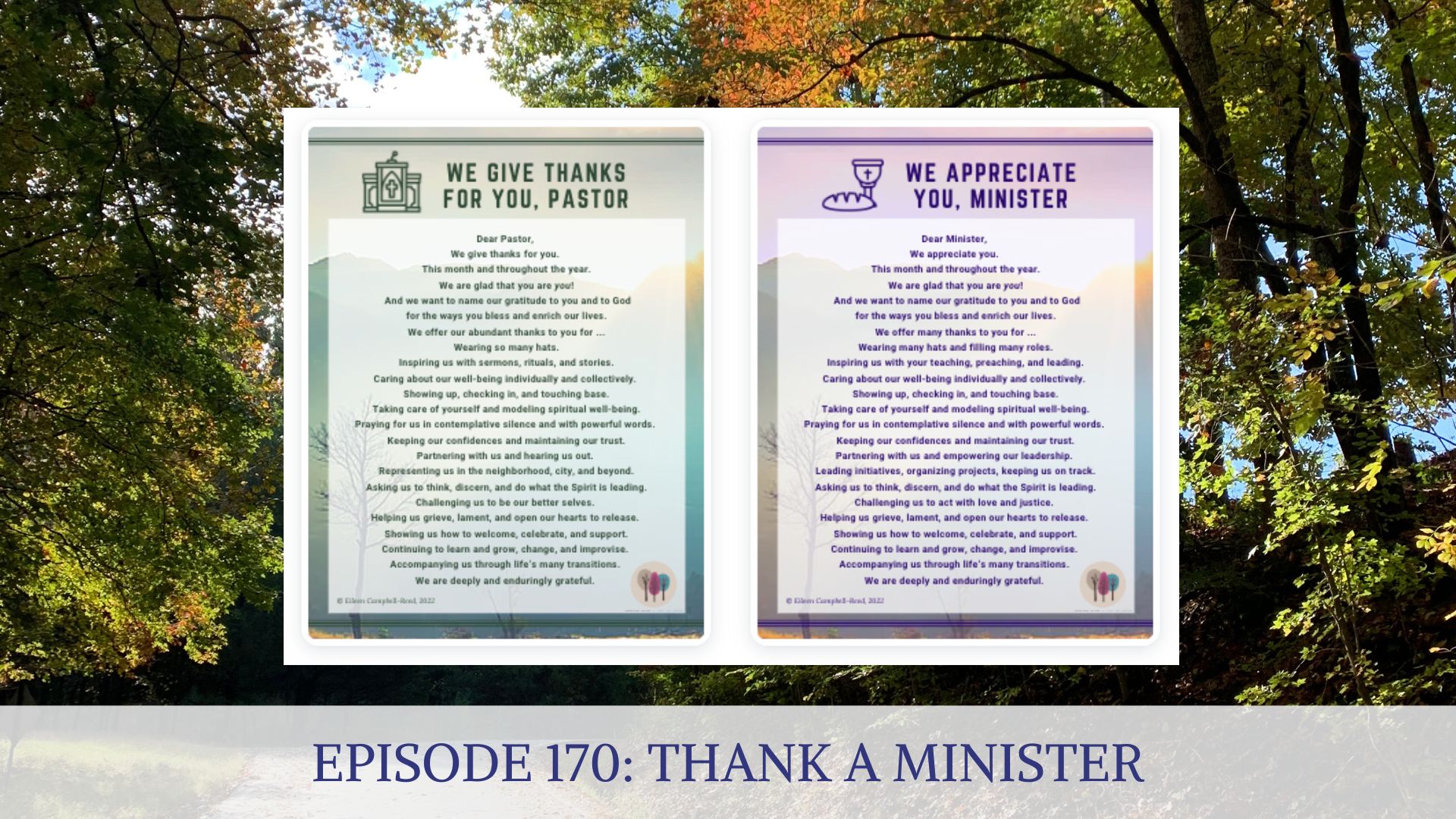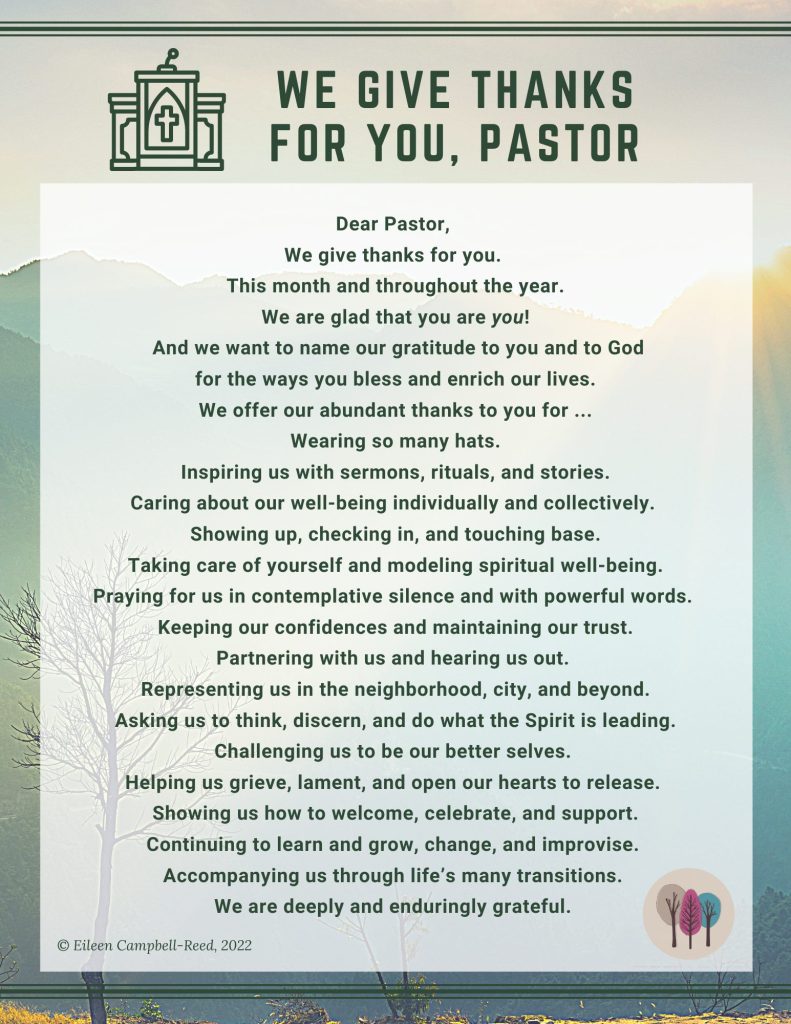This is clergy appreciation month, and we are here this week to help you thank a minister. Who needs thanking? A minister or pastor from your past who helped you to discern a call? Or perhaps your current minister – friend, peer, or your congregational pastor? Maybe it is a beginning minister, such as a seminarian, field education intern or pastoral resident? Surely they also need encouragement.
Appreciation goes such a long way. Those who work without a sense of appreciation can suffer more quickly from isolation, burnout, and resentment. Thus, giving thanks and offering appreciations are countermeasures.
According to Mike Robbins at Harvard Business Review, “recognition is about what people do; appreciation is about who they are.” According to Robbins, we need both. We need to receive both recognition for our achievements and appreciation for being who we are.
In my nearly 20 years of studying pastors and ministers and chaplains and priests, I’ve come to recognize just what an array skills and character traits they possess. In other words, it’s easy to appreciate a pastor or minister. Because they do so much, and most of them are “expert generalists,” and do many things well.
From the “Introduction” of Pastoral Imagination

Building on the earlier studies, Richard DeShon and his colleagues published a study of United Methodist Church (UMC) clergy in 2010 … Throughout the process, the project identified sixty-five items of knowledge, skill, ability, and personal characteristics (KSAPs) needed by ministers to do their work effectively. In a summary of the research, DeShon identified thirteen distinct cluster competencies, each with multiple skills, that were necessary for the work of congregational pastors. The following competencies are listed in their ranked order, starting with the most important: communication, preaching and public worship, self-development, caregiving, management, other-development, evangelism, fellowship, administration, relationship-building, rituals and sacraments, UMC connection, and facility construction.
One interesting fact that emerges from this assessment of United Methodist pastors is that congregational ministry needs people who can be expert generalists. Even among specialty positions of ministry (i.e., age-level or affinity group pastors), ministerial leaders need to be good at many things, integrate multiple skills, have a range of relational capacities, and access ancient and contemporary knowledge as well as bring it all together in a decisive way.
Campbell-Reed, Eileen R. Pastoral Imagination (Fortress Press, 2021), p. 20-21.
Thank a Minister Today
Sometimes it’s hard getting started. Yet to build a culture of trust and appreciation, we need to make the effort. To help you begin, I created two new appreciation blessings. I hope you will make use of them in this clergy appreciation month. Print and send. Post on a minister’s social counts. Or email a link and/or image.
Ministers and lay leaders have all been through so much in the past 30 months. They could all use some appreciation about now. These two downloads are similar, but each worded a little differently. Please share either or both, as suits your needs.
Right click on either image to save it to your phone, tablet, or computer. Then share it by email or on social media.
 And please add your own personal words of gratitude to these blessings whenever you share them.
And please add your own personal words of gratitude to these blessings whenever you share them.





